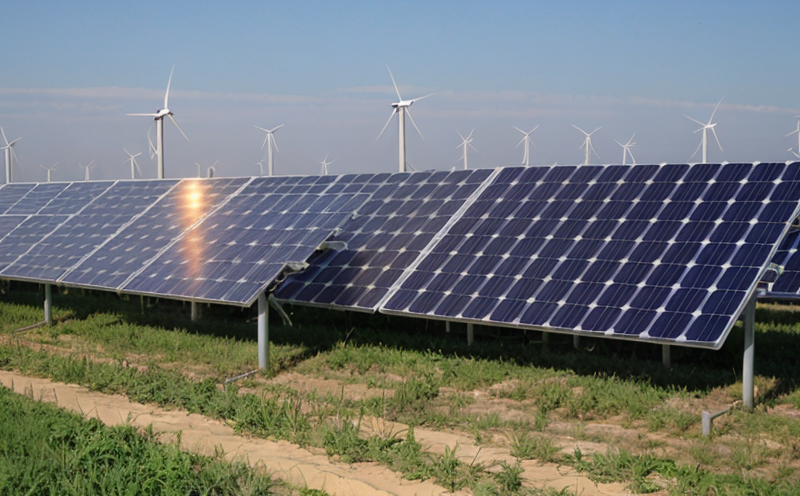Solar Energy Certification and Standards: A Comprehensive Guide
The solar energy industry has experienced significant growth in recent years, driven by decreasing costs, increasing efficiency, and growing demand for renewable energy sources. As the industry continues to expand, it has become essential for manufacturers, installers, and consumers to understand the importance of certification and standards in ensuring the quality and reliability of solar energy systems.
Certification is a process by which an independent third-party organization verifies that a product or system meets specific requirements and standards. In the context of solar energy, certification ensures that photovoltaic (PV) panels, inverters, mounting systems, and other components are designed, manufactured, and installed to perform optimally and safely.
Solar Energy Certification Agencies
There are several certification agencies that cater to the solar energy industry, each with its own set of standards and requirements. Some of the most prominent certification agencies include:
International Electrotechnical Commission (IEC): The IEC is a global organization that develops and publishes international standards for electrical, electronic, and related technologies. In the context of solar energy, the IEC has developed several standards, including IEC 61215 for PV modules and IEC 61730 for PV modules and assemblies.
Underwriters Laboratories (UL): UL is a leading certification agency that tests and certifies products to ensure they meet safety and performance requirements. In the solar industry, UL offers certification for PV modules, inverters, mounting systems, and other components.
Intertek: Intertek is another prominent certification agency that provides testing, inspection, and certification services for a wide range of industries, including solar energy.
Standards for Solar Energy Systems
Solar energy systems are subject to various standards that ensure their performance, safety, and reliability. Some key standards include:
Safety Standards: The National Electrical Code (NEC) and the International Residential Code (IRC) establish requirements for electrical and structural safety in residential installations.
Performance Standards: The IEC 61730 standard specifies requirements for PV modules and assemblies, while the IEC 61215 standard defines requirements for PV modules.
Interconnection Standards: The Institute of Electrical and Electronics Engineers (IEEE) has developed standards for grid interconnection, including IEEE 1547-2003.
Key Considerations for Solar Energy Certification
When it comes to solar energy certification, there are several key considerations that manufacturers, installers, and consumers should be aware of:
Material Compliance: PV modules and other components must comply with regulations regarding materials used in their manufacture.
Environmental Impact: The production process and final product must meet environmental standards and regulations.
Testing and Inspection: Products must undergo rigorous testing and inspection to ensure they meet performance and safety requirements.
Detailed Explanation of Key Standards
Here are two detailed paragraphs explaining key standards in bullet point format:
IEC 61215: Photovoltaic (PV) Modules - Design Qualification and Type Approval
The IEC 61215 standard specifies the design qualification and type approval of PV modules. The standard covers aspects such as:
Module Description: A description of the modules characteristics, including size, weight, and power output.
Mechanical Requirements: Requirements for mechanical strength, durability, and weather resistance.
Electrical Characteristics: Specifications for electrical performance, including open-circuit voltage, short-circuit current, and maximum power point tracking.
IEC 61730: Photovoltaic (PV) Module Safety Qualification - Part 1 and Part 2
The IEC 61730 standard covers the safety qualification of PV modules. The standard is divided into two parts:
Part 1: Specifies requirements for module design, manufacture, and testing to ensure safe operation under normal conditions.
Part 2: Covers aspects such as protection against fire hazards, electrical shock, and mechanical failure.
QA Section
Q: What are the benefits of solar energy certification?
A: Solar energy certification ensures that products meet performance and safety requirements, reducing the risk of malfunction or damage. Certification also increases consumer confidence in the products quality and reliability.
Q: How do I choose a certification agency for my solar energy system?
A: When selecting a certification agency, consider factors such as accreditation, experience, and reputation within the industry. Look for agencies that are accredited by reputable third-party organizations, such as the International Accreditation Forum (IAF).
Q: What is the difference between IEC 61215 and IEC 61730?
A: IEC 61215 specifies design qualification and type approval of PV modules, while IEC 61730 covers safety qualification. While both standards are essential for ensuring product performance and safety, they address distinct aspects of solar energy system design.
Q: Can a single certification cover all aspects of a solar energy system?
A: No, different certifications are required to ensure compliance with various standards and regulations. For example, PV modules may require IEC 61215 certification, while inverters may require IEC 61730 certification.
Q: What is the role of testing and inspection in solar energy certification?
A: Testing and inspection are critical components of the certification process. Products must undergo rigorous testing to ensure they meet performance and safety requirements.
Q: How often should a certified product be re-certified?
A: Re-certification frequency varies depending on factors such as regulatory changes, new technology developments, or significant modifications to the product design. Consult with your chosen certification agency for guidance on re-certification requirements.
Q: Can I self-certify my solar energy system?
A: No, self-certification is not recognized by industry standards and regulations. Independent third-party certification agencies must verify that products meet performance and safety requirements.
In conclusion, solar energy certification and standards are essential components of the renewable energy landscape. Manufacturers, installers, and consumers must understand the importance of certification in ensuring product quality, reliability, and safety. By familiarizing yourself with key standards, such as IEC 61215 and IEC 61730, you can make informed decisions about your solar energy system and contribute to a more sustainable future.

































